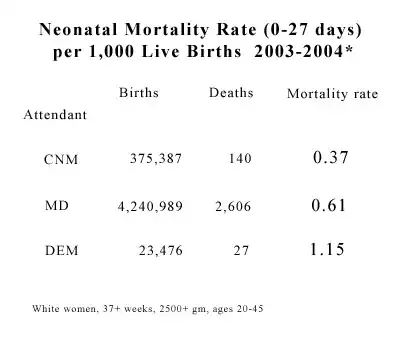I came across the following page, describing "The Farm"'s midwifery statistics: http://www.naturalbirthandbabycare.com/farm-statistics.html
That page wasn't that convincing. The only statistic that it directly compared against conventional birthing is the rate at which caesarian section is performed. That fewer c-sections are done is marvellous, but it doesn't prove that it's safe.
However, I clicked on a link from that page to http://www.naturalbirthandbabycare.com/home-birth.html , which talks about a paper published in BMJ: Outcomes of planned home births with certified professional midwives: large prospective study in North America. That paper doesn't seem to be looking at maternal mortality, but says that other research has already shown that home birthing for low risk mothers has similar safety to low risk hospital mothers.
http://www.naturalbirthandbabycare.com/home-birth.html also claims that studies showing home birthing for low risk mothers has a higher risk include counting unplanned emergency births as "home birthing".
So, is home birthing with midwives is as safe for low risk mothers as in-hospital ones?
